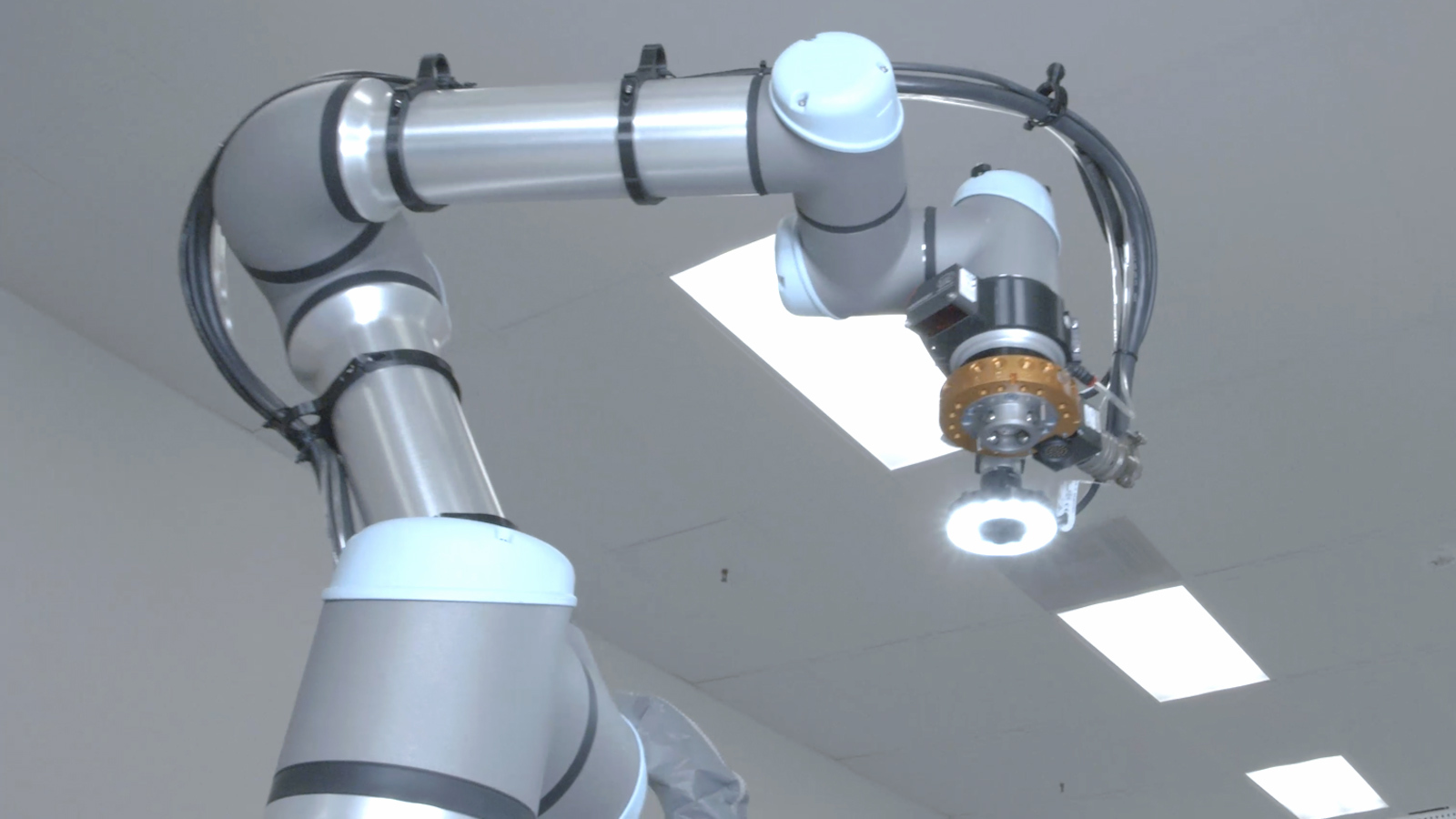On Tuesday, Lam Research introduced its Dextro collaborative robot (cobot), which promises to enable accurate and repeatable maintenance of fab tools.
Typical wafer fabrication facilities house hundreds of tools that require complex maintenance regularly. Accuracy in tool maintenance is essential, as the precise assembly of subsystems directly impacts yields. However, human beings are not as accurate as machines, but until recently, they used to be the only option.
Dextro is a mobile robotic unit with an arm equipped with interchangeable end-effectors for three key maintenance tasks. The cobot can install consumable components with over twice the accuracy of manual installation, ensuring proper assembly and improved etch performance at the edge of a wafer. It can also tighten high-precision vacuum-sealing bolts to exact specifications, reducing a 5% manual error rate and preventing temperature deviations that could disrupt production.
Finally, Dextro can safely remove polymer build-up from chamber walls without requiring disassembly, eliminating the need for human engineers to use heavy protective breathing gear. It should be noted that Dextro does not replace human technicians who still control the unit; rather, it enhances them.
Currently, Dextro is compatible with Lam’s Flex G and H series dielectric etch tools. Plans are in place to extend its compatibility to more tools by 2025, enabling broader use across the semiconductor manufacturing industry.
Dextro is now operational in multiple advanced semiconductor fabs globally to ensure improved first-time-right (FTR) results and reduce maintenance errors. Lam’s cobot’s key purpose is to carry out high-precision maintenance tasks with exceptional accuracy and repeatability. Intricate maintenance activities are typically error-prone and labor-intensive when executed manually, so using cobot fabs can indeed improve yields.
In addition, by automating repetitive and complex tasks, Dextro addresses critical industry challenges, such as a shortage of skilled engineers and the increasing complexity of modern wafer fabrication equipment.
Finally, by achieving repeatable maintenance performance, Dextro can significantly reduce waste, consumables, and time lost due to production interruptions, which increases tool uptime, a crucial metric for chipmakers.
“When manufacturing equipment requires maintenance, the work must be done quickly and efficiently to avoid extended tool downtime and wasted cost,” said Young Ju Kim, vice president and head of the Memory Etch Technology Team at Samsung Electronics. “Error-free maintenance by Dextro helps drive improvements in production variability and yield. This is an exciting milestone in Samsung’s journey to the autonomous fab.”
